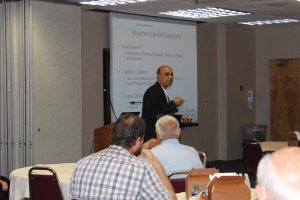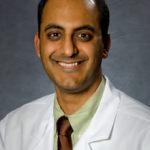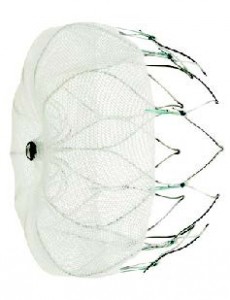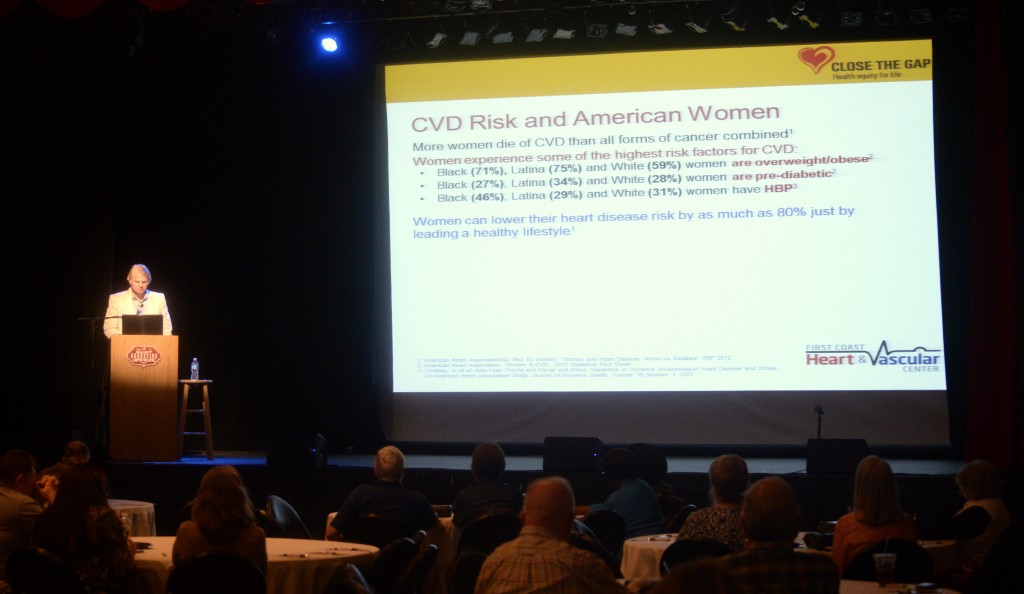Long-Term Efficacy and Safety of Evolocumab in Patients With Hypercholesterolemia
Here is a recent study conducted by Dr. Michael J. Koren of First Coast Heart and Vascular.
Long-Term Efficacy and Safety of Evolocumab in Patients With Hypercholes.._
Here is a recent study conducted by Dr. Michael J. Koren of First Coast Heart and Vascular.
Long-Term Efficacy and Safety of Evolocumab in Patients With Hypercholes.._
Dr. Pubbi talks AFib at Memorial Hospital.
Recently Dr. Dinesh Pubbi was invited to give a talk at Memorial Hospital here in Jacksonville about the effects of Atrial Fibrillation. Atrial Fibrillation is the most common type of arrhythmia. Dr. Pubbi discussed treatment options, including the Watchman implant device procedure that he performs at Memorial Hospital, to reduce the risk of stroke.

Dr. Dinesh Pubbi was recently featured on First Coast Living and discussed Atrial Fibrillation also known as AFib.
What is atrial fibrillation?
2- What are the signs/symptoms? What Do People Feel?
3- Are women more likely than men to have irregular heart beats? What about Race; are Afro Americans more likely than the white population to suffer from irregular heart beats?
4-Is atrial fibrillation associated with stroke or heart attack risk?
5 -How is AFib treated?
6-Can a person be cured of AFib? Can it go away?
Heart Drug Warfin used to treat AFib tied to Dementia Risk
An interesting study was recently published showing that people with the heart rhythm disorder atrial fibrillation (AF) may be at a greater risk of developing dementia, and the quality of their drug treatment may play a role.
Researchers found that patients on the clot-preventing drug warfarin showed a higher dementia risk if their blood levels of the medication were frequently too high or too low.
This turned out to be true not only for people with AF, but also for those using warfarin for other reasons.

Dr. Neil Sanghvi commented on this study and article.
“I believe this study highlights the importance of monitoring warfarin levels closely and to consider alternate anticoagulation options if the warfarin levels are difficult to maintain. Patients should not become concerned if their warfarin level is in range > 75% of the time. This study also supports the importance of using anticoagulation in AF patients since patients with too low warfarin levels were also prone to dementia.”
SOURCES: T. Jared Bunch, M.D., Intermountain Medical Center Heart Institute, Murray, Utah; Gordon Tomaselli, M.D., chief, division of cardiology, Johns Hopkins University, Baltimore, and past president, American Heart Association; May 5, 2016, presentation, Heart Rhythm Society annual meeting, San Francisco
Please join us for a Healthy Hearts Support Group Meeting May 19, 2016
Thursday, May 19th @ 6PM
JACKSONVILLE MARRIOTT
4670 Salisbury Rd. Jacksonville, FL 32256

Dr. Neil Sanghvi will talk about:
“What’s that fish flopping in my chest? Understanding Atrial Fibrillation”
Seating is limited please RSVP to jennifer.morrison@Firstcoastheart.com
Hors d’oeuvres & beverages will be provided.
A patient centered support group for discussing and understanding complete heart care. Attendees will find comfort and strength in education and self-awareness. Understand conditions of living with Cardiac Device Assistance, and connect with others to feel a sense of community. This forum is open to the public and free of charge. This group’s affiliation is not for profit.
Watch this video as Dr. Van Crisco discusses kicking heart disease in women at a lunch and learn at the WJCT studios.
The intention of this community education is to talk about heart disease in women and what we can and should be doing to prevent it. Discover what you can do to take care of yourself or someone you love.
Approximately 1 in 4 women in the U.S. have some form of heart disease?
Learn more about:

Cardiologist, Dr. Neil Sanghvi discusses Women and Heart Disease at the WJCT studio Lunch & Learn community heart education. The title of his talk was “What does your sex have to do with it? How to keep your heart ticking.”
Dr. Sanghvi discussed the facts, symptoms and treatment of irregular heart rhythms as well as the differences between women and men when it comes to heart care.
Did you know that heart failure is more common in women than men, yet women receive treatment two times less often than men.

We are excited to announce that First Coast Heart and Vascular Center physician, Dr. Van Crisco is among the first physicians in Northeast Florida to implant the WATCHMAN device, a novel device for stroke risk reduction for patients with non-valvular atrial fibrillation who have problems taking blood thinners. This procedure is offered at Memorial Hospital in Jacksonville, Florida, thorough the Memorial Structural Heart Program where Dr. Crisco also implants transcatheter aortic valves for severe symptomatic aortic stenosis.

The WATCHMAN device is indicated for patients with non-valvular atrial fibrillation who are looking for an alternative to the long-term use of blood thinners, like Coumadin. The WATCHMAN device is an implantable acorn-shaped plug that closes off an area of the heart called the left atrial appendage where over 90% of clots develop that can lead to stroke. The device is implanted through catheter access from the groin, and prevents damaging blood clots from forming. By shutting off the left atrial appendix, the risk of stroke is diminished, and patients may be able to discontinue taking blood thinners like Coumadin. This procedure is FDA approved and typically requires an overnight stay in hospital.
“For patients with non-valvular atrial fibrillation, the WATCHMAN device gives patients a cutting-edge stroke-risk reduction option.” Dr. Crisco says, “The WATCHMAN device can potentially relieve patients from the complications and bleeding risk issues of long-term blood thinners.”
Atrial Fibrillation is a very common abnormal heart rhythm where the upper chambers of the heart beat with an irregular rhythm, predisposing patients to increased risk for stroke over time. Atrial fibrillation affects over 5 million Americans. Approximately 15-20% of all strokes occur in patients with atrial fibrillation, and strokes from atrial fibrillation are typically more severe then other causes. Currently, Coumadin and other newer anticoagulant blood thinners are the most common treatments to reduce stroke risk in patients with atrial fibrillation. Coumadin specifically, as well as some other blood thinners, is not well tolerated by many patients and carries a significant risk of bleeding complications in particular patients. Almost half of atrial fibrillation patients suitable for Coumadin are currently untreated due to tolerance and adherence issues. WATCHMAN gives these patients an innovative alternative to Coumadin for stroke risk reduction.
To learn more about atrial fibrillation and treatment options to reduce your risk of stroke and to learn about the WATCHMAN device, please call 904.423-0010 to make an appointment. Device specific information is also available at Watchman Implant Device.
 Dr. Kevin Hayes Speaks about Heart Disease and BP
Dr. Kevin Hayes Speaks about Heart Disease and BP
Recently Dr. Kevin Hayes spoke at WJCT’s Lunch & Learn on March 2, 2016. He discussed Heart Disease and High Blood Pressure.

Did you know that more than 1 in 4 women in the U.S. have some type of heart disease? The focus of this community education is to discuss heart disease in women and what we can and should be doing about it. Learn what you can do to take care of yourself or someone you love.
Learn more about:
Van Crisco, M.D.
Dr. Van Crisco is recognized as a leader in the field of interventional cardiology.
His clinical focus includes invasive and interventional cardiovascular procedures, peripheral vascular disease management and endovascular intervention, acute heart attack care, structural heart disease management, as well as general cardiovascular medicine consultation.
To register to attend the event go to: wjct.org/heartdisease
Did you find what you were looking for?
Please contact us at 904-342-8300 to find out more about our practice
or to schedule an appointment with any of our cardiologists.